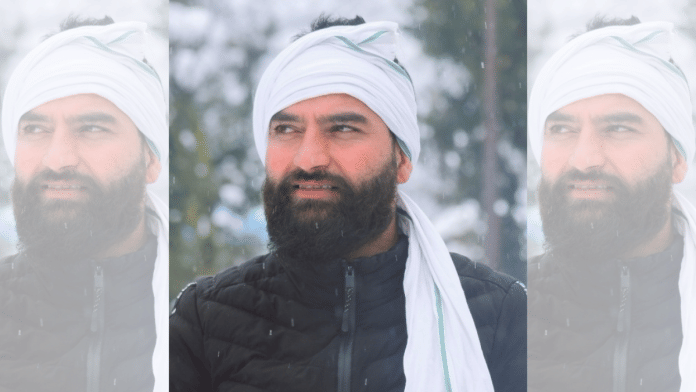In Jammu & Kashmir, democracy is not openly declared absent; it is instead made conditional, suspended, and filtered through instruments like the J&K Public Safety Act, 1978 (PSA). This preventive detention law, which allows the state to incarcerate individuals without trial for months, is officially justified as a shield against disorder. But on closer inspection, it resembles a scalpel that cuts deeper than necessary, often into the very veins of democratic participation.
The law, when bent to serve authority, no longer protects society; it polices it.
The PSA was conceived as an extraordinary measure to protect public order and state security. In practice, it is routinely deployed against those who embarrass authority, expose administrative weakness, or resist conformity.
A recorded instance of AAP MLA, Mehraj Malik, being jailed under the PSA for verbally abusing a Deputy Commissioner on social media captures the absurdity. Offensive? Yes. Criminal? Possibly, under IPC Sections 504, 506, or 186. But a threat to “public order” warranting preventive detention? That stretches both logic and law.
When political speech, however crude, is answered with incarceration without trial, one must ask: Is the state protecting its people, or merely protecting itself?
Courts have warned
The Supreme Court of India has long drawn distinctions between law and order and public order. In Dr. Ram Manohar Lohia v. State of Bihar (1966), the court held that every infraction of law cannot be elevated to a disturbance of public order. Similarly, in Kanu Biswas v. State of West Bengal (1972), it reminded us that public order is endangered only when the ordinary flow of life in society is disturbed, not when isolated individuals misbehave.
The court in Rekha v. State of Tamil Nadu (2011) went further: preventive detention is unconstitutional when ordinary criminal law is sufficient. To substitute PSA for prosecution is not only disproportionate, it is unconstitutional.
The J&K High Court has echoed this repeatedly. In Farooq Ahmad Bhat v. State of J&K (2018), detention was quashed because allegations of “instigation” were vague. In Mubarak Ali v. State of J&K (2017), the court underlined that the PSA cannot replace ordinary trials. Despite this rich jurisprudence, the cycle continues.
One cannot ignore the pattern of selective enforcement. Individuals accused of grave offenses sometimes face only routine FIRs and bail, while others, often political opponents or vocal critics, find themselves swiftly detained under the PSA. This disproportionate application creates an unmistakable sense of favouritism.
If law is a mirror of justice, then PSA in J&K often reflects not the impartial face of democracy, but the distorted silhouette of power: who must be silenced, who must be managed, and who may remain free.
Also read: Maoism to new constitution—Nepal saw many changes, but the same old politics took control
Instrument of control
The tragedy of democracy in J&K is not merely just the interruptions caused by Article 370’s abrogation or the prolonged absence of an elected Assembly. It also lies in the quieter erosion of everyday freedoms, speech, dissent, and political opposition, through mechanisms like the PSA.
A democracy weakens not only when ballots are delayed but also when voices are muffled before they can reach the ballot box. Preventive detention for verbal abuse is not simply about an MLA’s insult; it is about the boundaries of democratic speech being redrawn, where criticism is tolerated only until it inconveniences.
Article 22 of the Constitution permits preventive detention, but also embeds safeguards: reasons must be specific, detention must be reviewed, and liberty cannot be curtailed on vague suspicions. But PSA often operates as though these safeguards were formalities, not guarantees.
By placing preventive detention above ordinary law, the state implies that the machinery of justice is too weak or too slow to handle its critics. But if justice itself is sidelined, what remains of constitutional democracy?
The government defends PSA as indispensable for peace in a sensitive region. But does peace gained by silencing critics qualify as peace at all? Does the strength of a government lie in its ability to jail dissenters without trial, or in its capacity to withstand criticism and respond through transparent law?
Every time PSA is used to punish where IPC could be used, democracy loses a fragment of itself. Every selective detention raises the suspicion that the law is not being applied uniformly but strategically, to discipline society into silence.
The Public Safety Act was never meant to be the default response to dissent or impropriety. In Jammu & Kashmir, it has been stretched so far from its original purpose that it often appears less like a tool of security and more like an instrument of control.
Democracy is not judged by how efficiently dissent is silenced, but by how confidently it is allowed to exist. When preventive detention becomes the answer to words, however harsh, what message does that send about the strength of governance?
The erosion here is subtle but unmistakable: every misuse of PSA chips away at the foundations of democratic freedom in J&K. The real question that remains is stark: can democracy truly survive if its critics are not allowed to?
Shriya Handoo is a research analyst and spokesperson at the Jammu & Kashmir National Conference. Her X handle is @iamshriyahandoo. Views are personal.
(Edited by Ratan Priya)






